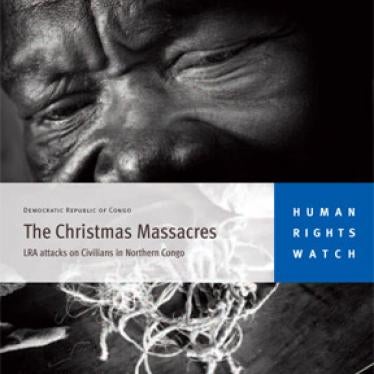The former Mozambican President Joaquim Chissano will give his final briefing to the United Nations Security Council on July 15 in his role as the secretary-general's special envoy for the areas of east and central Africa affected by the Lord's Resistance Army and their two-decade campaign of violence. Although Chissano's mandate was suspended as of June 30, abuses by the LRA - ruthless rebels whose actions have had a devastating effect on civilians in four countries - continue.
With Chissano's departure, the Security Council needs to focus on how to ensure protection of civilians from further LRA attacks and how to apprehend LRA leaders who are wanted by the International Criminal Court for war crimes and crimes against humanity. These are tough issues without easy solutions, but inaction should not be an option.
Kofi Annan, then the secretary-general, appointed Chissano in 2006 because Annan saw the need for a "comprehensive and sustained approach" to address the LRA war. For two years, Chissano and other leaders in the region attended and supported talks between the Ugandan government and the LRA in Juba, southern Sudan. Those talks achieved some progress: the parties agreed to a cessation of hostilities and mechanisms to prosecute those implicated in serious crimes, and the abuses subsided for a time.
But the commitment of the LRA leader, Joseph Kony, to the negotiations was never clear. He was expected to sign the final peace agreements on several occasions in 2008, but never did, and ended the year with his forces conducting a rampage of killings in northeastern Democratic Republic of Congo. Human Rights Watch documented these atrocities, which followed a poorly executed Ugandan military offensive to force Kony from his Congolese hideouts.
In the last eight months, the LRA has killed nearly 1,200 civilians across northeastern Congo and southern Sudan. Abductions of children and adults have also increased, indicating that the LRA - infamous for using children as soldiers - may be seeking to replenish its ranks. In two attacks in early June near the Congolese town of Dakwa, local sources reported the LRA abducted 135 adults and children. Only a few days ago, another 80 people were abducted in the village of Bayule. The UN estimates that more than 250,000 people have been displaced by the recent violence.
Since March, when the Ugandan-led operation officially ended, the protection of civilians has been left to the poorly equipped Congolese army and the UN peacekeeping mission in Congo. Both are overstretched and are not able to stop LRA attacks.
Several US congressmen and senators are supporting a bill that would oblige the Obama administration to develop a comprehensive strategy within six months of the law's enactment to help protect civilians and eliminate the threat posed by the LRA. But, more immediate action is required in the meantime. While the bill is debated in committee, vulnerable civilians are being abducted and killed.
The Security Council has met the increased attacks on civilians by the LRA with concern, but minimal action. In suspending Chissano's mandate, Secretary-General Ban Ki-moon said that the onus is on Kony, the LRA leader, to sign the peace agreements. But the international community - and the Security Council especially - should not remain hostage to Kony's whims while abuses continue.
Experience has shown that none of the countries of the region have the capability themselves to protect civilians from the LRA or to apprehend the LRA leaders wanted by the ICC. The Security Council has an important role to play in developing a strategy and moving it forward urgently. The alternative is to turn its back on the people of northeastern Congo, northern Uganda, southern Sudan, and Central African Republic who have suffered for far too long.
Maria Burnett is Human Rights Watch's Uganda researcher. Elise Keppler is senior counsel with Human Rights Watch's International Justice Program







